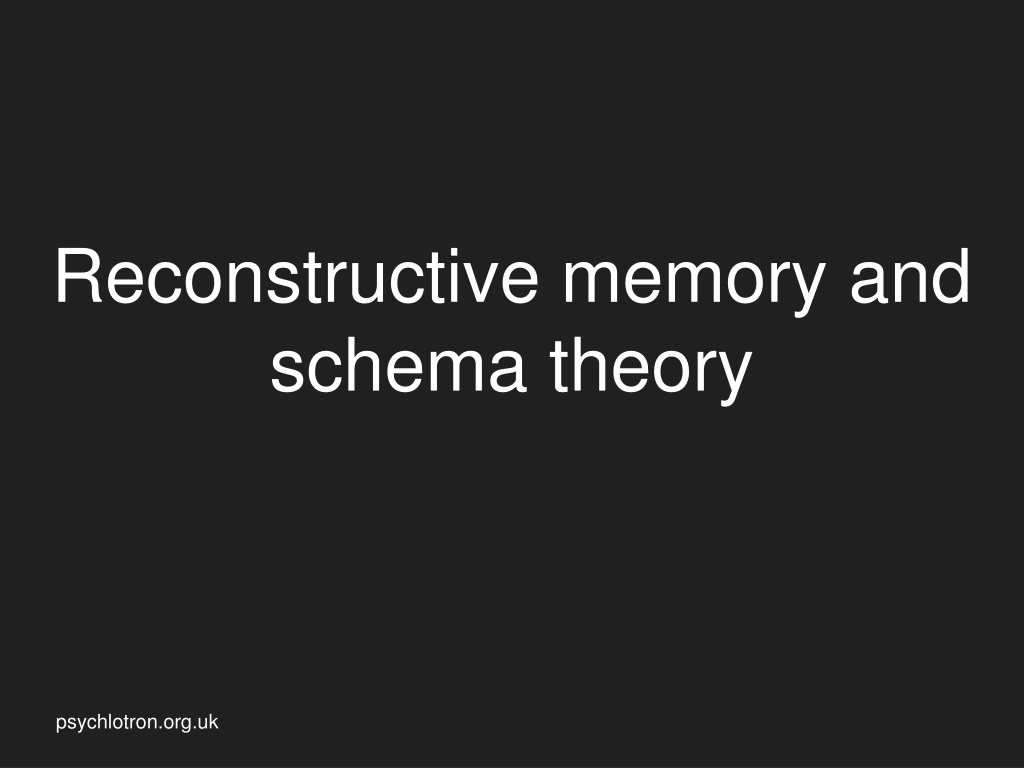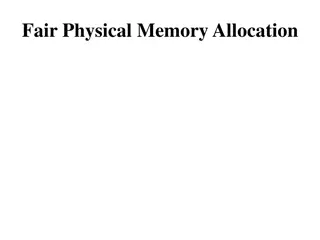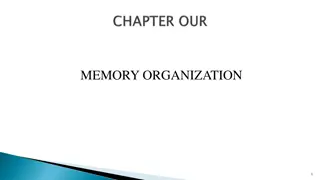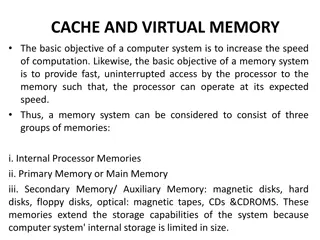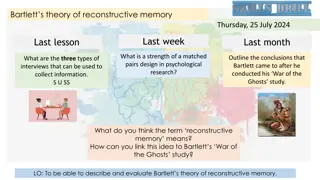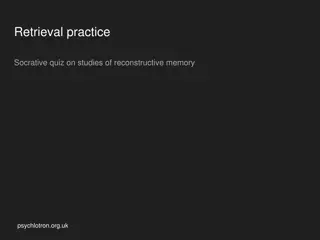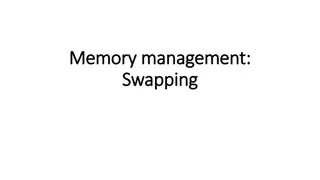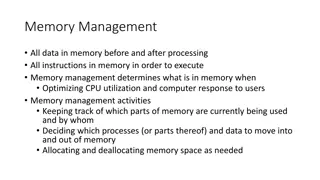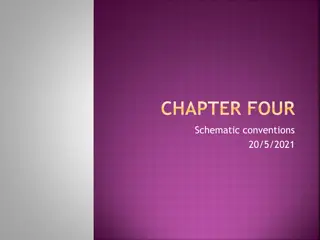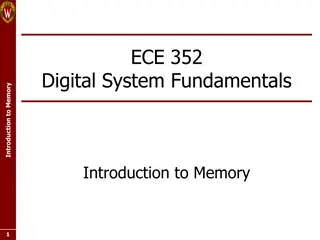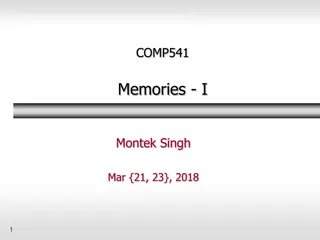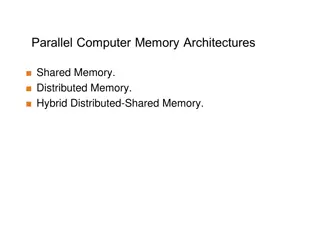Understanding Reconstructive Memory and Schema Theory in Psychology
Explore the concepts of reconstructive memory and schema theory in psychology, delving into how encoding, storing, and retrieving information in long-term memory can lead to alterations based on our stored knowledge and experiences. Discover how schemas influence our interpretation of events, impacting the accuracy of our memories. Gain insights into the application of these theories through real-life scenarios and consider the implications of memory reconstruction.
Download Presentation

Please find below an Image/Link to download the presentation.
The content on the website is provided AS IS for your information and personal use only. It may not be sold, licensed, or shared on other websites without obtaining consent from the author. Download presentation by click this link. If you encounter any issues during the download, it is possible that the publisher has removed the file from their server.
E N D
Presentation Transcript
Reconstructive memory and schema theory psychlotron.org.uk
Reconstructive memory & schema theory Key idea: Encoding, storing and retrieving info in LTM causes it to change. Info changes in ways that reflect our stored knowledge and experiences. Memory is not an accurate record of what happened.
Without consulting with other people, draw from memory the figure your saw earlier. Label it clearly with the name you gave it.
Schema theory A schema is a cognitive framework that organises our knowledge about things, people or situations. We use our schemas to interpret and understand the world. Schemas cause us to have expectations. These expectations can affect how we perceive the world and how we remember things.
When the man entered the kitchen, he slipped on a wet spot and dropped the delicate glass vase he was holding. The glass vase was very expensive and everyone watched the event with horror.
Reconstructive memory (Bartlett, 1932) Memory is not veridical. Schemas influence interpretation of events. Relatively few details actually encoded. Remembering = reconstructing events from details and schemas. Recall includes: Rationalisation (reasoning about what must have happened) Confabulation (unconsciously filling in any gaps in recall) Distortion (changing details so that they fit in with schemas)
Application & analysis John supports Squatney United FC and Dave supports Squatney Rovers FC. They were waiting on the platform at Squatney Station after the local derby match when a fight broke out between two groups of rival fans. As witnesses, both John and Dave were interviewed by the police. John was very clear that the fight had been started by the Rovers fans, one of whom kicked out at a United fan. Dave swore that the fight had been started by the United fans, one of whom threw a punch at a Rovers fan. Inspector Bleechman said, They can t both be right - one of them must be lying. Would a cognitive psychologist agree?
